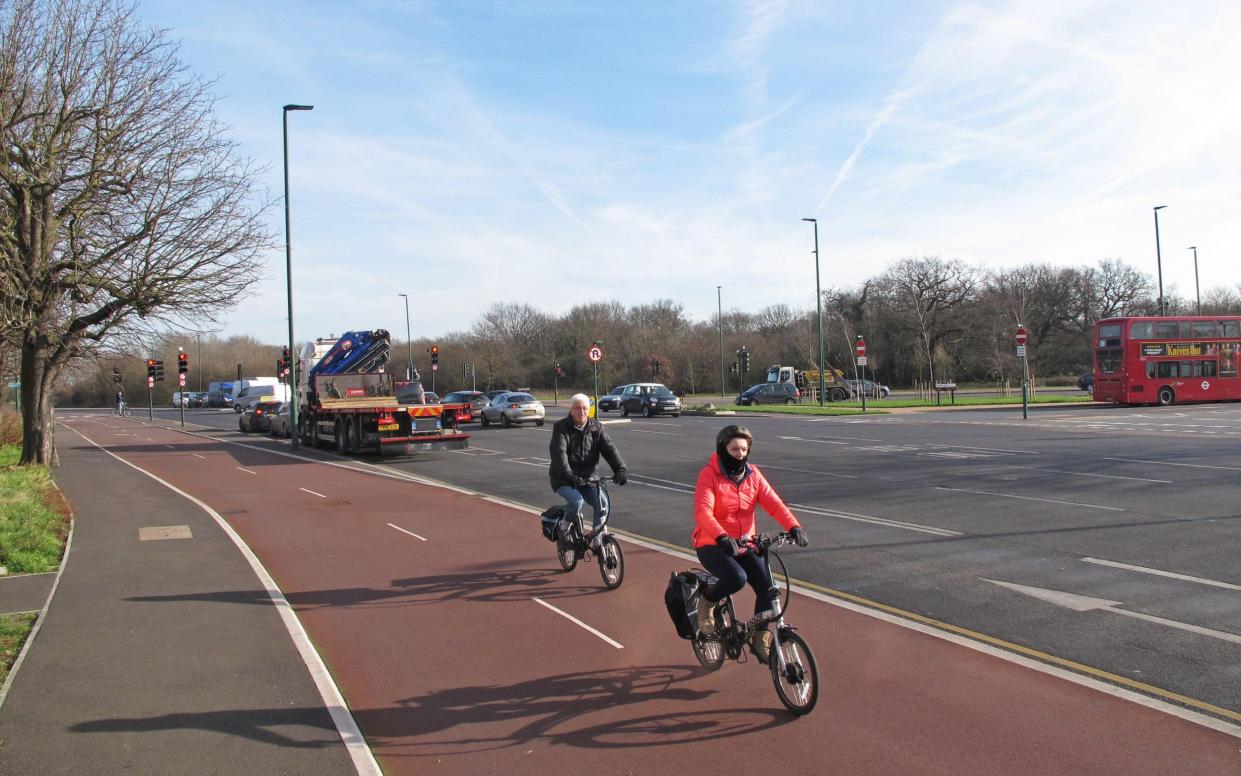Wheels are in motion to turn British cities into cycle-friendly ‘mini-Hollands’

Mini-Holland cycling schemes to encourage people to ditch their cars are to be introduced to Britain’s major cities under government plans.
Nineteen local authorities, including Manchester, Hull and Nottinghamshire, are to get government funds for mini-Hollands with segregated bike lanes, traffic calming and residential streets blocked to cars.
It is part of a £200 million extension of the Government’s £2 billion “active travel” plans to persuade motorists to give up their cars for short journeys and instead cycle or walk.
It will also pay for 134 schemes across 46 local councils outside London which include new cycle lanes, footways and pedestrian crossings.
Local officials have steered away from describing any of the projects as Low Traffic Neighbourhoods (LTNs), which have provoked intense local opposition over road closures and claims of increased congestion on boundary highways in some areas. But they did acknowledge some had LTN features.
Chris Boardman, former Olympic champion and the Government’s active travel commissioner, said: “This is all about enabling people to leave their cars at home and enjoy local journeys on foot or by bike.”
He said the new agency, Active Travel England, would ensure “high-quality spaces for cycling, wheeling and walking are delivered across all parts of England, creating better streets, a happier school run and healthier, more pleasant journeys to work and the shops”.
Mini-Hollands were first introduced by Boris Johnson in March 2014, when he was London mayor, in three boroughs - Waltham Forest, Enfield and Kingston.

They included separate bus and cycle lanes, bans on traffic in specific streets, a cycle bridge and traffic calming measures such as “Copenhagen crossings” where pavements may be raised at junctions to encourage cars to give priority to pedestrians.
The 19 authorities are to share £1.5 million for feasibility studies into mini-Holland schemes.
Study finds scheme increases cycling and walking
A Westminster study of 1,712 residents in the three London pilots found they increased cycling by an average of nine minutes a week and walking by 32 minutes, although there was no significant reduction in car use.
They include Leicester, Suffolk County Council, the north-east transport committee, Cheshire East, Liverpool, Brighton and Hove, Hampshire, Oxfordshire, Dorset, Gloucestershire, West of England, Bournemouth, Christchurch and Poole, Shropshire/Shrewsbury Town Council, Warwickshire, Hull, Sheffield, and West Yorkshire.
The £161 million will include new junctions and pedestrian crossings in Liverpool, new segregated cycle lanes across the north-east and a new 26-mile “travel corridor” or cycle “spine” in Gloucestershire, from Stroud to Bishops Cleeve with reduced traffic.
There will also be £35 million to improve the quality, safety and accessibility of the National Cycle Network, a UK-wide network of paths and routes for walking, cycling or wheeling managed by the independent charity Sustrans.
Up to £8 million is going towards a new programme to accelerate the uptake of e-cycles by offering short and long-term loans of e-cycles.
Trudy Harrison, a transport minister, said the aim was to create a new “golden age of walking and cycling, enabling everyone to reap the benefits of a more active lifestyle, creating streets where children can play, and making nicer places to live”.

 Yahoo News
Yahoo News 
